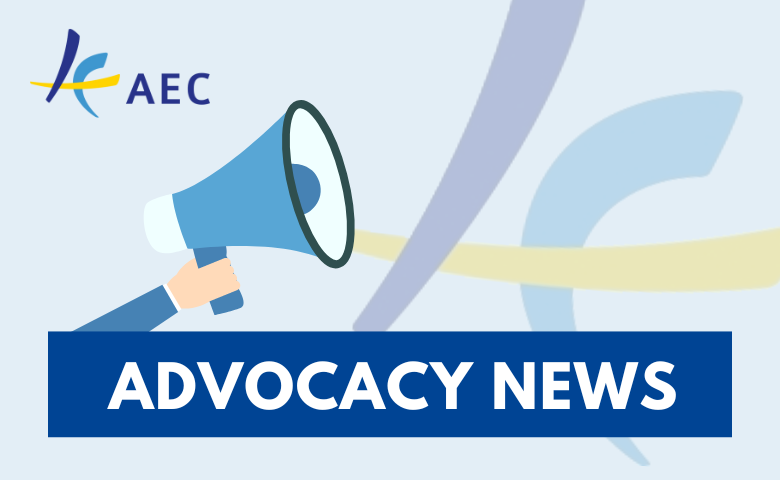Advocacy for Higher Music Education has always been one of AEC’s most important missions, but the specific goals and the means that have been used have not always been the same. The current AEC Advocacy Strategy sets three main objectives for AEC in relation to advocacy about the value of music and music education in society:
- AEC will represent and advance the interests of the Higher Music Education (HME) sector at national, European, and global levels for the greater societal good.
- AEC will work to increase opportunity and access to Music Education.
- AEC will assist its members in engaging audiences in an evolving cultural environment and in exploring the musical needs in society.
These ambitious goals call for a carefully planned effort, where institutions, stakeholders and partners play together and build on the strengths of all actors involved.
A closer understanding of the field in which we operate is also needed. On the one hand, it is a disadvantage that our institutions can be classed as both educational and cultural institutions. This has the consequence that music educations sometimes find it difficult to be accepted by the authorities structures, whether in the EU or at the national level.
Conversely, AEC has succeeded well in exploiting this relationship to its advantage, as we are in good dialogue with EU officials from both sectors. Recently, we have even helped to ensure that the sectors exchange experience for the common good of both sectors.
However, we should not forget that the real decision-makers are the politicians. If we want the politicians as our friends and agents of change, then we must also take an interest in their working conditions and methods.
In the EU, politicians are elected for five years at a time. It may seem like a long time, but the number of cases on a politician’s table is enormous, and there is not much time to deal with education and culture, which are in principle the competence of the Member States.
But as you know, the EU runs several large development programmes, which the AEC also greatly benefits from, and of course the EU’s efforts for transnational cooperation and exchange of students are vital for our area. So the educational and cultural areas of European politics remain important, and thus a good contact with the members of the European Parliament.
In today’s hectic media landscape, characterised by social media and increasing polarisation, it is a challenge for politicians to pursue long-term visions. Daily, they are confronted with cases that require a position to be taken, and lobbyists and interest organisations such as the AEC are becoming increasingly adept at framing their wishes and expectations.
As a part of the ARTEMIS project the AEC Advocacy Task Force has been tasked with preparing an Advocacy Tool Kit for its member institutions enabling them to strengthen advocacy and lobbying at the national, regional and local level. If we are to succeed in fostering the value of music and music education in society, we will need to work together at several levels and the new toolkit will help us synchronize our efforts.
This year brings a special situation where the politicians must be re-elected, and many have already reduced their presence in Brussels to devote themselves to the election campaign in their respective home countries. This also means that after the elections to the EU parliament, we will have to welcome a number of new politicians.
AEC is in dialogue with the European Commission Directorate-General for Education Youth Sport and Culture to contribute to the introductory program that the Directorate is preparing for the new politicians.
The AEC sends a clear call to all its members: help ensure that as many as possible make use of their right to vote in the elections to the European Parliament. It strengthens the parliament as an institution and thus also its decisions, which the AEC, to the best of its ability and together with its partners, will ensure that they benefit European music life and artistic education.






